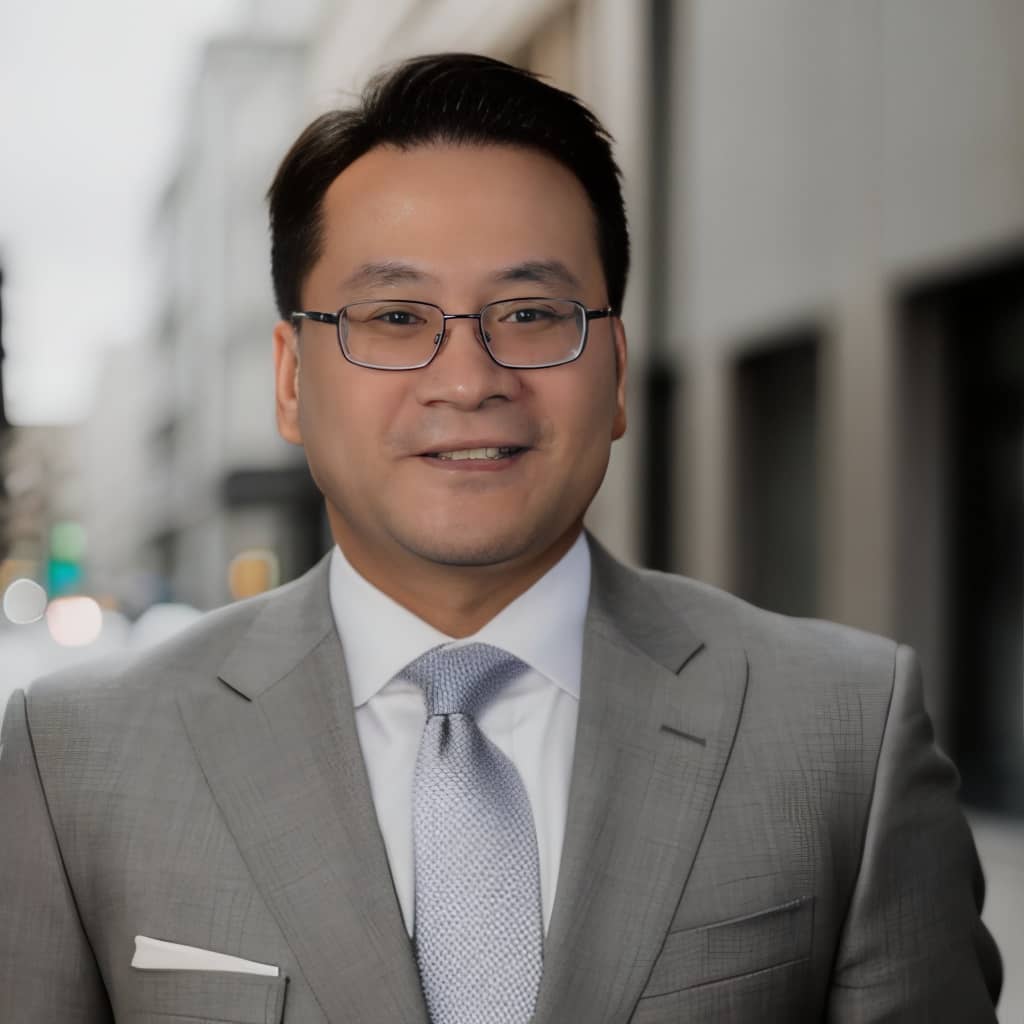The VOK presents an exclusive interview with Dr. Bilal Ahmad Bhat, the visionary founder of BAB Group Of Companies, offering insights into entrepreneurship and business leadership. Additionally, delve into a captivating portrait interview with Professor Dr. Glenn Agung Hole, where he shares his expertise and perspectives on relevant topics. Stay tuned to The VOK for in-depth conversations, expert opinions, and inspiring stories from industry leaders and influencers across various fields.
Professor Dr. Glenn Agung Hole a family man, father of two and a husband stands as a distinguished figure in the intersections of academia, business leadership, and social advocacy. With a storied career that reflects significant leadership across various sectors and a deep-seated dedication to sustainability and innovation, Dr. Hole has dedicated his expertise to mentoring the next generation of leaders and impacting global communities positively. This expanded interview sheds light on his personal history, his global engagements, and the profound commitments that drive his multifaceted career.
Early Life and Foundational Influences
Academic and Professional Journey
Global Engagements and Community Involvement
Philosophical Outlook on Leadership and Sustainability
Personal Milestones and Reflections
Future Aspirations and Continuing Legacy
Glenn: Certainly. I was born in Jakarta and was only six months old when adopted by a Norwegian couple, growing up in Aalesund. This early experience of transition and adaptation perhaps ignited my interest in global cultures and systems. Working on my family’s farm taught me about efficiency and teamwork from a young age. These lessons have profoundly influenced my approach to business and leadership, emphasizing the critical interplay of people, processes, and technology.
Glenn: The farm was my first classroom. It’s where I learned the value of hard work and the importance of aligning everyone’s efforts towards a common goal. We used simple technologies, like the tractor, to increase our efficiency, which mirrored the way businesses can use technology to improve their processes. This early exposure to the synergies between human effort and technology laid the groundwork for my future in management. It taught me that whether in agriculture or in a corporate setting, success often hinges on how well you can integrate people, processes, and technology. This realization was the genesis of the TIPS model, aiming to streamline these elements to drive organizational success.
Glenn: My academic and professional paths were both guided by a desire to make substantive changes in how organizations operate. Witnessing the strategic shifts needed within companies like Statkraft early in my career, and later through my roles in various organizations, solidified my commitment to sustainable practice as a core business strategy. The TIPS methodology I developed is a direct result of these experiences, aiming to integrate technology, intellectual capital, processes, and strategy to foster sustainable growth.
Glenn: Absolutely. In each role, from overseeing large teams to spearheading strategic initiatives, I saw first-hand the impact of leadership on organizational culture and its sustainable practices. For example, as a CEO, I was in a position to direct the focus towards sustainability not just as a compliance or marketing strategy, but as an integral part of how the business operates. This has involved advocating for renewable energy projects, implementing sustainable supply chains, and developing corporate social responsibility initiatives that align with core business values. Each experience reinforced my belief that effective leadership is crucial for driving sustainable change, leading me to integrate these principles into the TIPS model and share them with future leaders through my academic roles. This holistic approach helps organizations not just survive but thrive in today’s environmentally conscious market.
Glenn: My roles in various organizations, including the Norwegian Church and as Emeritus President of the Georgian Association of Orthodox Monasteries in Norway, reflect a commitment to fostering understanding across cultural and religious lines. My engagement in intergovernmental dialogues and roles as an international elections observer are about promoting democratic processes and sustainable practices globally. These experiences have allowed me to bring a unique perspective back to my academic roles, enriching the learning experience for my students.
Glenn: Balancing these roles requires a strategic approach and effective time management, but it’s driven by a deep-seated passion for each of these areas. Whether I’m teaching, participating in a church council, or engaging in international dialogues, I see these activities as interconnected parts of a larger mission to promote sustainability, peace, and understanding worldwide. These roles complement each other, providing insights that I bring into the classroom, thereby offering students a more holistic view of the challenges and opportunities in managing modern organizations in a globalized world. This synergy not only enhances my teaching but also allows me to stay at the forefront of international trends and practices, which is essential for a contemporary educator and leader.
Glenn: My philosophy is that sustainability should be the melody of life, harmoniously integrated with nature’s rhythm. This belief underpins my teaching, leadership, and even my writing. I contribute to scientific journals, blogs, and magazines to discuss the importance of diversity, inclusion, and sustainable leadership. By sharing this knowledge widely, I aim to inspire others to adopt practices that consider long-term ecological and economic health.
Glenn: Absolutely. For instance, in my roles as a leader and advisor, I advocate for and implement green initiatives such as reducing waste, increasing energy efficiency, and sourcing sustainable materials. In academia, I incorporate case studies and projects that challenge students to devise business solutions that are not only economically viable but also environmentally and socially responsible. This approach has led to innovative ideas from students, such as sustainable supply chain strategies and new business models that prioritize circular economy principles.
Additionally, in my writing and public speaking engagements, I stress the importance of building organizations that are resilient and adaptable to the changing global environment. This means creating cultures that value continuous learning, inclusivity, and a proactive stance on global issues like climate change. These efforts are designed to mold a new generation of leaders who are prepared to think and act sustainably, viewing environmental and social challenges as opportunities to innovate and differentiate themselves in the marketplace.
Glenn: Each milestone, from adopting sustainable practices in a corporate environment to helping establish monastic communities in Norway, is a step toward a larger vision of a sustainable and inclusive global community. My personal journey from an orphanage in Jakarta to leadership positions across Europe is a testament to the power of education, opportunity, and the will to make a difference.
Glenn: Several key moments come to mind that have been defining in my journey. One significant moment was when I transitioned from the corporate world to academia. This move was motivated by a desire to have a broader impact through teaching and developing future leaders. It marked a shift in my career but also deepened my commitment to integrating sustainable practices into business education.
Another defining moment was my first major role as a CEO, where I was tasked with turning around a struggling company. It was challenging but also rewarding to implement changes that not only saved the company but also improved the working lives of the employees. This experience reinforced my belief in the power of responsible leadership and sustainable management practices.
Additionally, my involvement in establishing monastic communities provided a unique perspective on how diverse cultural and religious practices contribute to a richer, more inclusive society. These experiences have enriched my understanding and approach to leadership, teaching me valuable lessons about resilience, adaptability, and the importance of maintaining a clear vision and values in all endeavors.
Glenn: I am focused on expanding my mentorship and educational initiatives, particularly through digital platforms, to reach a broader audience. I aim to continue influencing future generations of leaders at the University of South-Eastern Norway and beyond. By fostering a curriculum that integrates sustainable practices and ethical leadership, I hope to continue contributing to a global dialogue on these critical issues.
Glenn: Implementing these goals involves leveraging technology to enhance accessibility to quality education. This includes developing online courses and interactive platforms that can deliver complex concepts in management and sustainability to a global audience. One challenge is ensuring that these digital learning tools are engaging and effective for a diverse student base, which requires continuous innovation and adaptation.
Another key component is strengthening partnerships with other educational institutions and organizations to provide a more interconnected learning experience. These collaborations can offer students real-world projects and internships that emphasize sustainable practices across different industries.
The challenges here include aligning various organizational goals and maintaining a consistent focus on sustainability while adapting to the rapidly changing global business environment. However, these challenges also present opportunities to innovate and push the boundaries of traditional education and leadership training.
Glenn: I hope my legacy will be that of a catalyst for change—a leader who inspired others to see the value of integrating sustainability into every aspect of their professional lives. I wish to be remembered as someone who helped pave the way for a generation of leaders who not only understand the importance of sustainable practices but who also live by those principles and drive their organizations towards a more ethical and sustainable future. More than anything, I want to instill a sense of responsibility and a vision for a better world in my students and colleagues, encouraging them to think globally and act locally with a clear ethical compass.
As we wrap up our interview, it’s clear that Professor Dr. Glenn Agung Hole is more than just an academic or business leader; he is a pioneering figure dedicated to promoting sustainability, education, and cultural understanding on a global scale. His remarkable journey from Jakarta to becoming a prominent educator and leader in Norway is a testament to his deep commitment to effecting positive change. Dr. Hole’s leadership, educational endeavors, and extensive volunteer work not only demonstrate his dedication but also continue to influence and forge new paths for sustainable and inclusive practices around the world.


